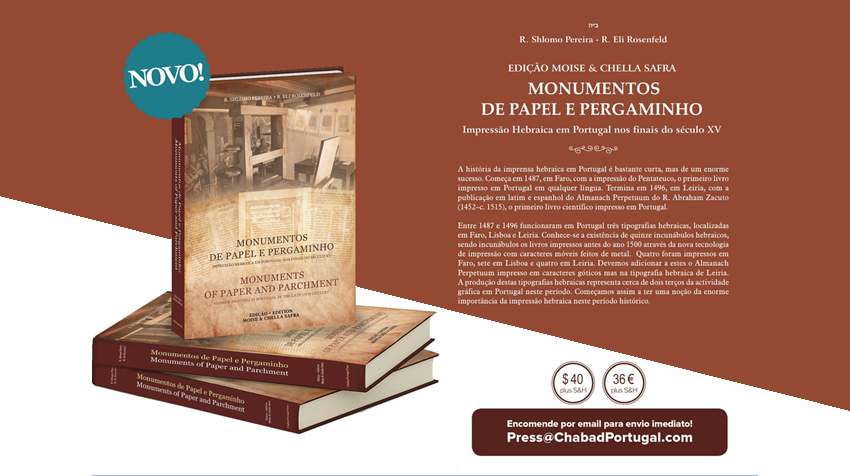Highlighting the permanent Jewish presence and the relevance of Jewish contributions in Eretz Israel as well as the continuous connection between Diaspora Jews and Eretz Israel throughout the centuries between the Destruction of the Second Temple and the onset of modern Zionism, through a series of one-page notes distributed weekly.
DID YOU KNOW THAT... in 1525, R. Levi ibn Habib, originally from Spain, became Chief Rabbi of Jerusalem? R. Levi Ibn Habib (c.1480-c.1545), also known by the acronym of Ralbach, was born in Zamora. His father, R. Yaakov Ibn Habib [1460-1516] was a Talmudic scholar and head of the yeshiva in Salamanca. In 1492, with the Spanish expulsion, he resettled with his family in Lisbon, a path followed by many thousands of their brethren. In 1497, together with the bulk of the Portuguese Jewry and Spanish refugees, R. Levi Ibn Habib was forcibly baptized. He was seventeen years old. Within one year, the family was able to flee Portugal, this time for the Ottoman Empire. In Salonica, then a major center of Jewish learning, he studied under his father and would eventually help edit and complete his father’s magnum opus, ‘Ein Yaakov’ a very popular compilation and commentary on the non-legal parts of the Talmud. R. Ibn Habib became very famous and respected as a Talmudic scholar in his own right. In addition, R. Ibn Habib was an expert in astronomy and in mathematics and, on matters related to the Hebrew calendar, wrote ‘Perush Kiddush HaChodesh’, a commentary on the corresponding parts of the ‘Mishneh Torah’ of Maimonides [1138-1204]. In 1525, and as part of his personal quest to atone for his forced apostasy as a youth, R. Ibn Habib moved to Israel. After a short period in Safed, he settled permanently in Jerusalem, where his reputation promptly earned him the position of Chief Rabbi. Famously, in 1538, the rabbis of Safed attempted to restore Semichah, the traditional biblical ordination, and revive the Sanhedrin. R. Ibn Habib, despite having been offered ordination, led the opposition to such efforts. He left a written account of what turned out to be a rather harsh controversy in ‘Kuntreis HaSemichah’. His views eventually prevailed. R. Ibn Habib served as the Chief Rabbi in Jerusalem until his death in 1545.


































